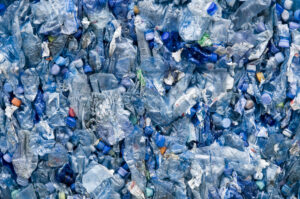5 Things You Should Know About Plastic Burning
The oil and gas industry’s race to replace fossil fuel production with increased plastic production is critically reliant on the myth of plastic’s recyclability. However, EPA estimates that less than 9% of plastic in the U.S. gets recycled each year.
An especially harmful component of the petrochemical buildout, and the sector’s recycling myth, involves the promotion of so-called “advanced” or “chemical recycling.” Using the false rhetoric of “waste-to-energy” and “waste-to-chemicals,” in reality, these practices amount to incineration of plastic waste. Here are five things you should know about this dangerous practice.

The U.S. EPA estimates that less than 9% of plastic in the U.S. gets recycled each year.
- Recent restrictions by countries that historically accepted plastic waste imports have put pressure on the plastic industry to manage plastic waste differently, resulting in the accelerated buildout of plastic incineration.
- Data suggest that the pollution from “chemical recycling” incinerators is as bad as–or worse than–the toxic pollution from conventional incinerators.
- A recent analysis by NRDC found that of the eight “chemical recycling” facilities assessed, most were not recycling any plastic.
- These plastic burning facilities are often sited in communities of color or low-income communities that already face multiple threats to their environmental health, among a range of other injustices.
- The petrochemical and plastic industries are promoting this harmful practice through familiar greenwashing conventions, including false promises of sustainable economic development for low income and rural communities and underhanded policy plays. This propaganda has even been effective among some progressive, environmentally-conscious policy makers. Laws permitting chemical recycling have been adopted in 18 states.
Luckily, communities are fighting back, and some are winning. In Georgia, plans to build a chemical recycling plant were canceled in response to community advocacy efforts that demonstrated that the facility was too great of a risk.
CEH is joining with allies across the country to raise awareness of the myths and harms of so-called “chemical recycling.” We intend to use policy levers to block its buildout, prevent efforts to deregulate this practice, ensure these facilities are not eligible for green energy incentives, and emphasize the importance of upstream solutions to the plastic waste crisis.
Learn more about our program Petrochemicals, Plastics & Climate.
